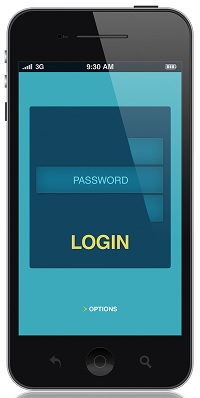This augmented reality wearable technology is working hard to become more attractive for users.
One of the largest barriers that wearable technology has faced to widespread adoption has been that it hasn’t been all that conscious of fashion, and Google Glass has not been any exception to that rule.
However, that brand of augmented reality glasses is now partnering with top designers to leap ahead.
In this effort, Google Glass is soon going to be available through the makers of Oakley and Ray-Ban frames, to help to make sure that this internet connected, augmented reality wearable technology will become more appealing for people who are as concerned with the way that they will look using the tech as they are with the functionality of these internet connected gadgets.
This has become possible because Google Glass has partnered with Luxottica Group.
That Italian frame making company, which is also behind Ray-Band and Oakley products, will now be working with the Google to ensure that their eyewear will appear less sci-fi and geeky. This announcement has come close to another that was made with regards to wearables that will be sold by that company. They also revealed that Fossil Group is designing a smartwatch that will be based on the Android operating system for wearable devices.
The frames that will be developed by Luxottica will also include the various elements that are central to the augmented reality eyewear, including the camera, tiny display just out of the direct line of sight. The device currently costs about $1,500 though it unclear as to whether or not the Luxottica version will cost the same amount. What has been revealed is that as early as this year, the new and more stylish version of the wearables will be available at the over 5,000 Luxottica stores in the United States.
Until now, Google Glass has been sold only to a specific group of just over 10,000 test subjects that have been labeled “Explorers”. That said, while people do seem fascinated by the technology, they are unimpressed with the way that it looks when worn, nicknaming those same Explorers as “glassholes” for wearing gadgets that appear to be more appropriate in a cyborg movie than actual reality.
This, according to predictions that have been released by Symantec.
If security firm, Symantec, is correct, then wearable technology such as smartwatches could soon mean that the need for us to try to remember a long list of different ever-changing logins and passwords could come to an end.
While mobile devices have previously been associated with low security, they could soon be giving protection a boost.
Mobile security has always been something that has made users feel a little bit leery, and has held back mobile payments and commerce from becoming reaching its true potential. However, wearable technology such as smartwatches, augmented reality glasses, and other wearables may one day make it possible for us to shake our reliance on password protection. They may currently be associated with privacy violations and hacking, but they also hold the ability to function with more accurate security protocols than password protection.
The boost that wearable technology could give to confidence in mobile security could be considerable.
Symantec released its predictions at the Wearable Technology Show, where Sian John, a technical specialist, called today’s password protection “frankly rubbish”. It was also added that the only reason that they are still being used is because they are user friendly compared to the alternatives that have been available until now.
John went on to explain that Symantec is currently investigating ways that wearables and other tech can provide a more practical and engaging mechanism for authentication. She also stated that by working collaboratively with the IT industry with regards to security standards, it could soon become possible for devices of all forms and from all brands to be able to communicate with each other in order to verify that someone is who he or she claims to be.
She said that “If you’ve got collaboration, you can end up with a sort of personal area network. If you’ve got your phone, your Fitbit and your Google Glass all in the same place, the actual proximity of those things can help us know that it’s you.”
At the same time, she also said that this sort of wearable technology remains in its very earliest forms and that these security solutions shouldn’t be expected to be developed tomorrow. The reason is that some time will be needed before it will be made possible for this universal form of authentication infrastructure to actually become affordable.


